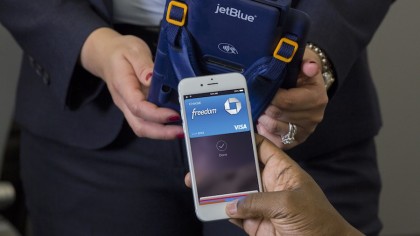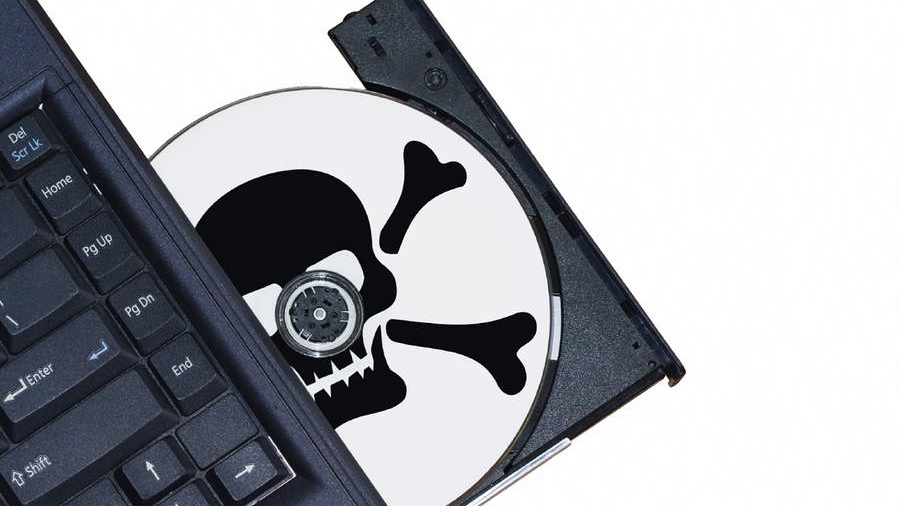Could Blockchain totally change how the internet works?
Is Blockchain the internet's missing link?
Why is it so attractive to banks?
Financial institutions are just the kind of companies with which Blockchains will find the most success. "They can create, manage, and record entire asset lifecycles on a cryptographically secured platform that can be interoperable with the platforms of third-parties," thirdparties," says Winkelspecht, "such as clearing houses and other financial institutions."
There is an inherent danger in banks adopting Blockchains because the tech effectively removes their powerful middleman position in the currency exchange market. "The banks are currently the central arbiters of currency exchange, and with Blockchain there is no requirement for one, so it is a huge potential disruption in that sector," says Stephens, but that could be outweighed by savings on infrastructure costs.
Santander estimates that Blockchains could save banks $20 billion (around £13 billion, AU$28 billion) a year by 2022.
While Blockchain databases do have the potential to be phenomenally important, it's not just banking that will benefit. "They're a whole new kind of distributed database with high integrity guarantees, designed to run in untrusted environments," says Dave Hrycyszyn, Director of Strategy and Technology at digital agency Head. "That means they could transform any industry that deals with history, data, and trust – really important sectors like finance, medicine, supply chains and auditing."

What are some other potential uses for Blockchain tech?
Industries that rely heavily on disparate data networks are ripe for disruption by Blockchains, which create an authenticated online digital identity. This is the end of 'analogue' trust and the start of digital certainty.
"Once this digital identity has been created, each ongoing re-authentication can be done via the Blockchain," explains Stephens. "This makes this a 'trust-less' system by the fact that no one company or individual has enough information to defraud the system – we all require the Blockchain to agree before passing an authentication request." GBG is looking to replace the requirement of trust, and using Blockchain to decentralise the process.
Another use could be the medical sector, where the handling of patient medical records is a thorny issue. "With shared ledger technology, patients can maintain control over their own tamperproof medical history," says Winkelspecht, who thinks that Blockchains would allow patients to share their medical data selectively with hospitals, doctors and clinics in real-time. As well as massively reducing privacy risks, using Blockchains could also reduce data management costs.
Are you a pro? Subscribe to our newsletter
Sign up to the TechRadar Pro newsletter to get all the top news, opinion, features and guidance your business needs to succeed!
Governments are interested, too. "The UK government is already working towards exploring the use of Blockchain technology in a bid to improve accuracy in record keeping," says Vij. However, Blockchains could also make fraud-proof electronic or internet-based voting possible.

Could Blockchain prevent illegal music/movie downloading?
"It can certainly challenge copyright infringement, and it may be able to help law enforcement," says Winkelspecht. "By using a shared ledger or shared write Blockchain for digital rights management, a Blockchain could be used as proof of ownership, and serve as a common rights repository for content owners." Blockchains could also be used to transfer rights between users.
Others aren't so sure about the extent of Blockchain's skills in this area. "Illegal movie downloading will still continue regardless of Blockchain," says Stephens, though he thinks it has the potential to allow musicians to have a platform to distribute the undisputed 'original' version of a track so fans know they are buying from the source. "It does not stop someone buying the original, copying it and then putting their own version onto the Blockchain," says Stephens.
A compelling future?
Blockchain technology isn't going to change the internet overnight. "There's a lack of useful information that connects this technology to real problems," says Winkelspecht. "People understand that it's transformative, but they are unsure how it can help their business."
Blockchain is exciting, but it's a tech that needs proving, it needs quality apps, and it needs regulation. "The world has been gifted a potentially great piece of technology," says Stephens, "but now it is up to us to build something compelling that people want to use."
Jamie is a freelance tech, travel and space journalist based in the UK. He’s been writing regularly for Techradar since it was launched in 2008 and also writes regularly for Forbes, The Telegraph, the South China Morning Post, Sky & Telescope and the Sky At Night magazine as well as other Future titles T3, Digital Camera World, All About Space and Space.com. He also edits two of his own websites, TravGear.com and WhenIsTheNextEclipse.com that reflect his obsession with travel gear and solar eclipse travel. He is the author of A Stargazing Program For Beginners (Springer, 2015),
